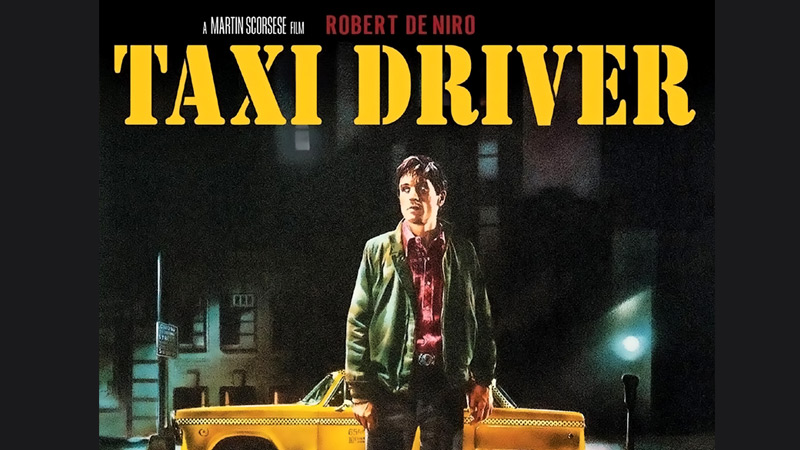Martin Scorsese’s 1976 masterpiece, ‘Taxi Driver,’ stands as a seminal work in American cinema, exploring themes of alienation, urban decay, and the quest for identity. With a screenplay by Paul Schrader and an unforgettable performance by Robert De Niro, ‘Taxi Driver’ is a character study and a social commentary, capturing the malaise of post-Vietnam War America.
Plot
The film follows Travis Bickle (De Niro), a 26-year-old Vietnam War veteran suffering from insomnia, who takes up a job as a nighttime taxi driver in New York City. As he navigates the city’s underbelly, Travis becomes increasingly disillusioned by the rampant crime and moral decay he witnesses.
His sense of isolation and frustration is exacerbated by his failed attempts to connect with others, such as his brief, disastrous relationship with Betsy (Cybill Shepherd), a campaign worker for presidential candidate Charles Palantine.
Travis’s descent into madness is marked by his growing obsession with rescuing Iris (Jodie Foster), a 12-year-old prostitute, from her pimp, Sport (Harvey Keitel). This obsession culminates in a violent climax, where Travis takes the law into his own hands, leading to a bloodbath that paradoxically brands him as a hero in the media.
Themes and symbolism
At its core, ‘Taxi Driver’ is a profound exploration of isolation and the human psyche. Travis is a quintessential anti-hero, whose struggle with loneliness and societal disconnect drives him towards violence. His diary entries and monologues reveal a man desperately seeking purpose in a world he perceives as corrupt and hostile.
Scorsese’s depiction of New York City is crucial to the film’s atmosphere. The city is almost a character in itself, portrayed as a grimy, nightmarish landscape filled with vice and degradation. This setting underscores Travis’s internal chaos and his view of the world as a place in need of cleansing.
The film also delves into themes of vigilantism and morality. Travis’s transformation from a disaffected cab driver to a self-appointed savior raises questions about justice and redemption. His actions blur the line between heroism and madness, forcing the audience to confront uncomfortable truths about violence and societal values.
Legacy and impact
‘Taxi Driver’ remains a landmark in cinema for its raw portrayal of mental illness and urban alienation. The film’s critical acclaim is reflected in its numerous accolades, including the Palme d’Or at the 1976 Cannes Film Festival. It has inspired countless filmmakers and continues to be a touchstone for discussions on violence, morality, and the human condition.
Scorsese’s collaboration with Schrader and De Niro on ‘Taxi Driver’ marked a pivotal moment in their careers, solidifying their reputations as formidable talents in Hollywood. The film’s influence extends beyond the screen, impacting popular culture and even being referenced in real-life events, most notoriously in the attempted assassination of President Ronald Reagan by John Hinckley Jr., who claimed he was inspired by the film.
‘Taxi Driver’ is a powerful exploration of a man’s descent into madness against the backdrop of a decaying urban landscape. It challenges viewers to reflect on the nature of isolation, the search for meaning, and the fine line between sanity and insanity. Scorsese’s vision, combined with De Niro’s unforgettable performance, ensures that ‘Taxi Driver’ remains an enduring classic in the annals of film history








